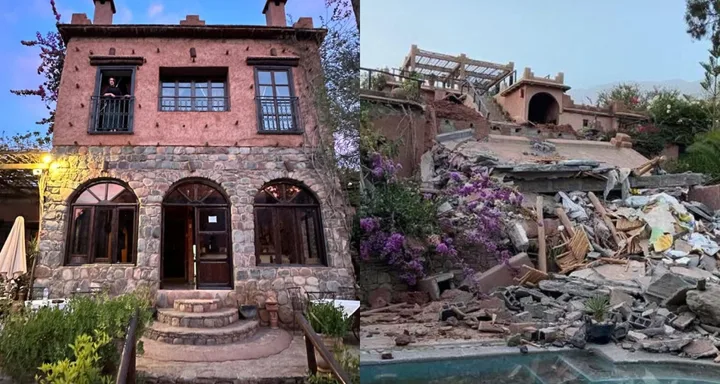On September 8 just after 11pm, a 6.8-magnitude earthquake rocked Morocco, killing more than 2000 people and injuring thousands more. marie claire creative director Juanita Field was enjoying a farewell drink on her Marrakesh hotel rooftop when the quake struck.
The last night of our magical trip to Morocco was one I’ll never forget.
During our five-day group tour, we explored Marrakesh and the incredible surrounding Atlas Mountains, as well as savoured the delicious food and warm hospitality of the local people.
To celebrate our final evening, our guide, Brahim Hanaoui, organised a special dinner served by local Berber women inside the ancient Medina, a stunning 11th century World Heritage site.
Our tour company, Intrepid Travel, prides itself on supporting local businesses here, especially women, and after a week of meeting generous Moroccans, we were excited to have one last meet-and-greet as the perfect farewell to our dream adventure.
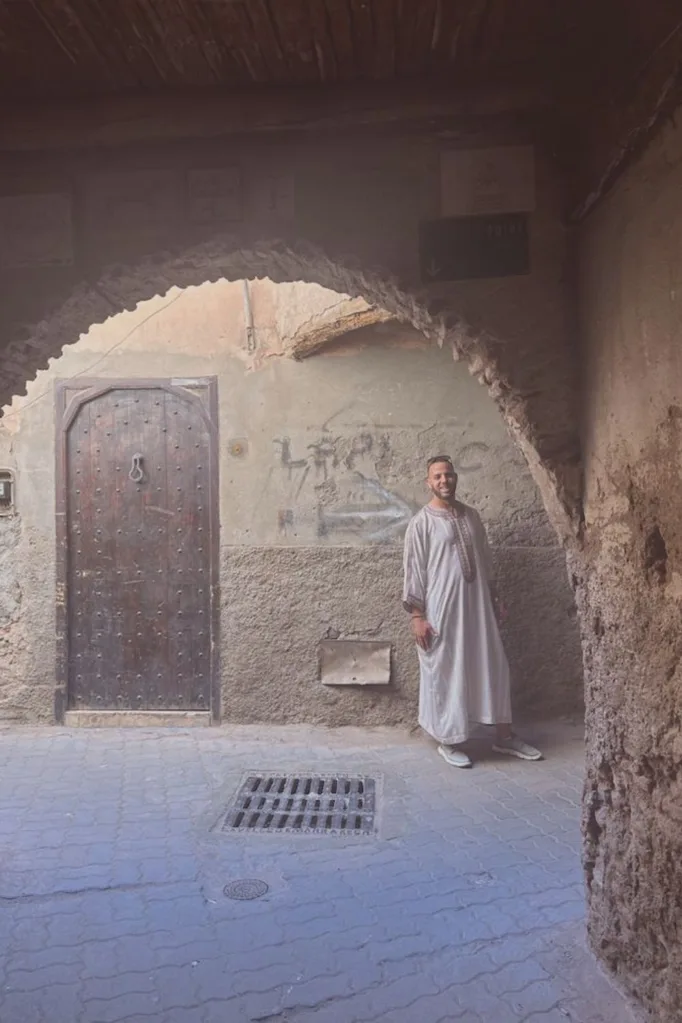
We walk through the craziness of the Souk on a Saturday night and take the winding alleyways and stairs to our destination.
The women greet us with open arms and guide us to a room laden with colourful Moroccan rugs and a round table with stools. We take a seat while the women give a passionate performance of their local music, and soon we’re all dancing, gyrating to the rhythm.
We’re then served the best meal of the trip, delicious morsels all handmade in their tiny kitchen and served at a round table so everyone can be “seen and heard”, a Moroccan-Berber tradition.
After many songs and wild dances, our guide ends the night, reminding us we need to be up early for our planned flights out of Marrakesh.
We head back to the hotel at 11pm, through the bustling alleyways and past the ancient city walls. Half of us decide to have one more drink before bed on our hotel’s open terrace on the top sixth floor.
Sitting around another low, round table, talking about our trip highlights, we suddenly feel a giant jolt, as if something is pushing the building savagely to the right. And then it sways to the left.
Most of us are shocked, but some realise quickly what‘s happening and dive under the table laden with tumbling drinks. We all follow suit, dropping to the floor. As the terrace swings back to the right, our local friends quickly pull us up from the floor and towards a roofless area, fearful the ceiling may collapse.
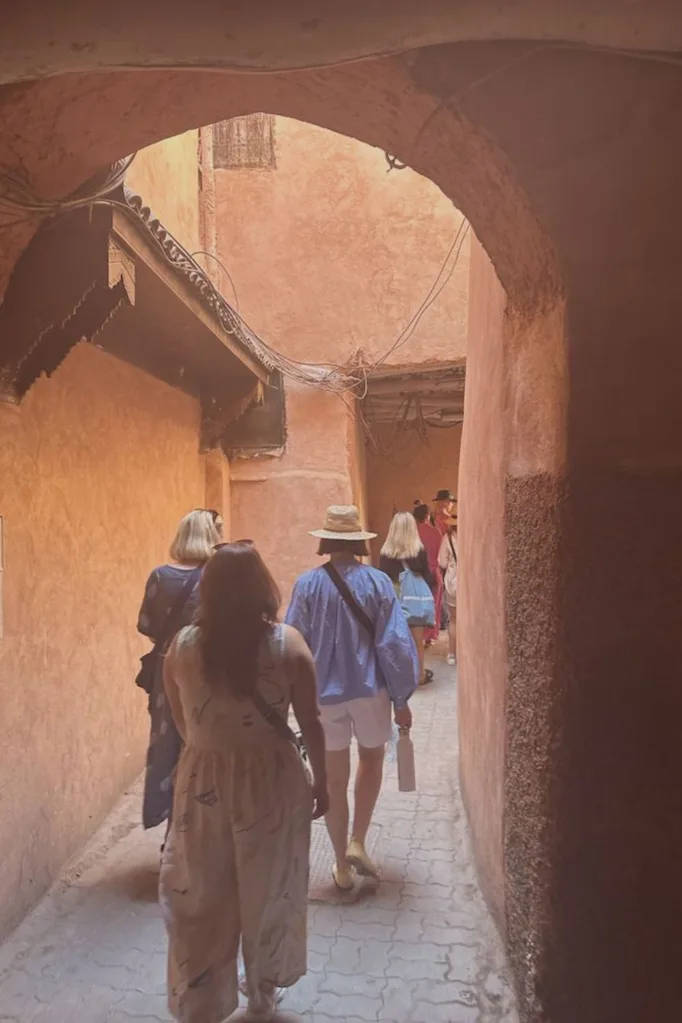
The building continues to sway like a tree in the wind, back and forth. Furniture, bottles and drinks are flying across the terrace; people are confused and panicking, struggling to stay upright.
No-one can work out the timing: maybe two minutes of tremors or more? We quickly realise we need to get out of the building, fast! We grab each other and rush downstairs. I notice the water in the pool is swooshing even though the earthquake stopped a minute ago.
Everyone’s in shock, but orderly and carefully making their way down the smooth, slippery stairs in the darkness. I think to myself: the stairway is marble so surely when the building collapses we’ll be safer here?
We reach the street and race across the road to where others are gathering from our tour group. One by one, they emerge from the hotel and join us on the street. One woman was so terrified she hid in the closet for 30 minutes.
Our guide keeps us updated about what’s happening across the region. One of the ancient walls in Medina collapsed (where we spent the evening), but thankfully the women are safe.
Three nights ago, we’d stayed in a guest house called Chez Momo in the Atlas Mountains, the epicentre of the earthquake. Now it’s completely wrecked. They send Brahim a photo of my now-collapsed room where I took pictures just a few days ago.
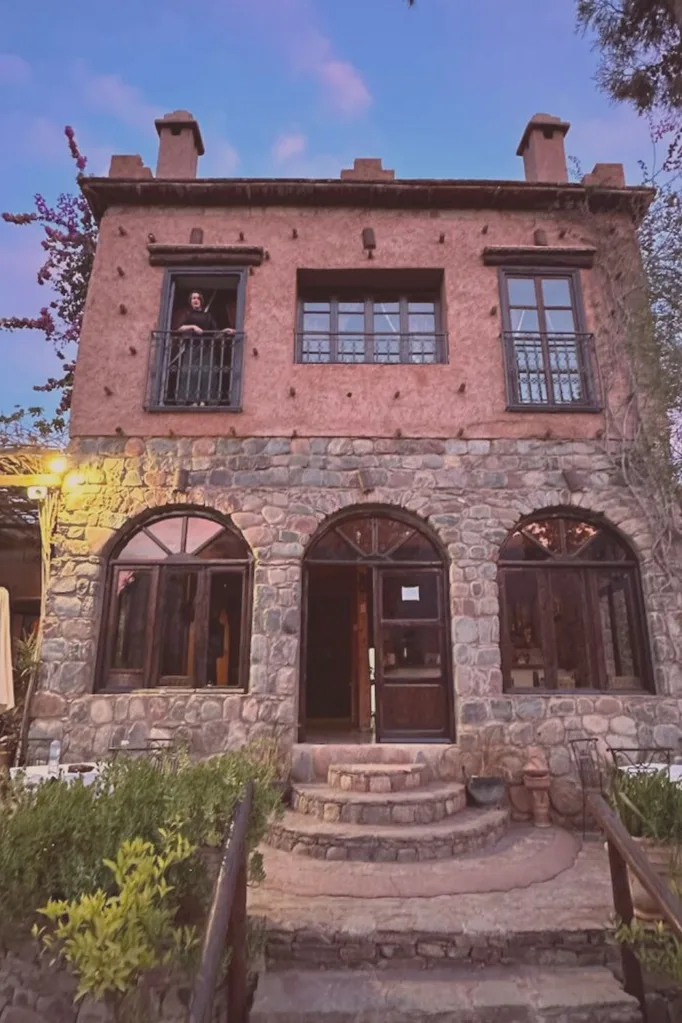
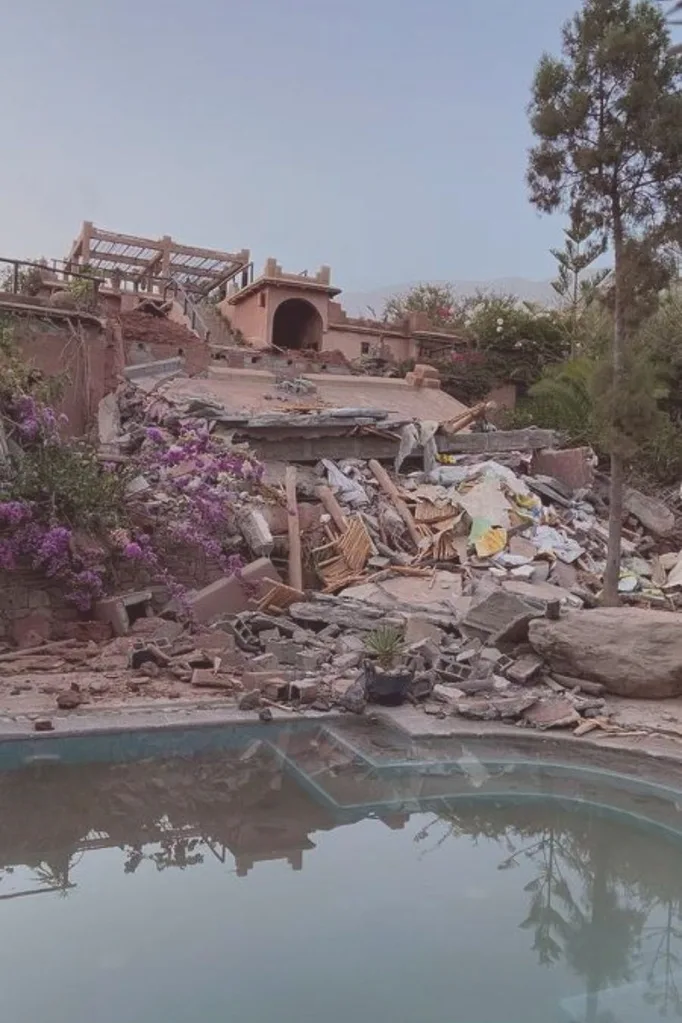
People from the Moroccan Tennis Club, opposite our hotel, come outside to check on us, kindly offering water and a safe place to sleep. We’re too traumatised to take up the offer: strangely, the noisy, vibrant streets seem the safest place to be right now, especially with the spectre of aftershocks still haunting us.
The fear of going back into the building – any building – is just too severe right now.
We notice that even though the hotel savagely swayed, there’s barely any damage on the street: motorbikes are upright and bins are still standing. We can’t make sense of it given the fact our world was flung to-and-fro up there.
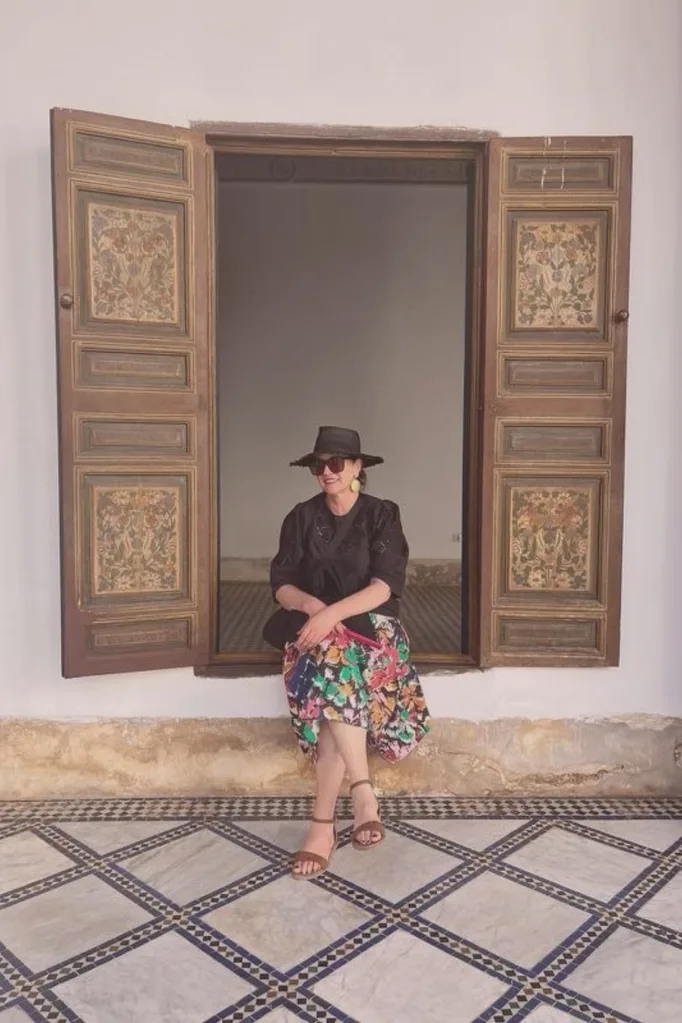
Hours pass and we befriend more travellers and locals on the street, all swapping survival stories as if in group therapy.
People are standing in their pyjamas, braless, barefoot and empty-handed, not even picking up their passports and handbags as they escaped their rooms.
Our guide suggests we rest in a nearby van, which we agree to (although no-one really sleeps). At around 4:30am, we’re allowed back to our rooms after we’re given the all-clear from aftershocks.
We grab some sleep before being woken for breakfast served by the shaken hotel staff. The airport is a frenzy – masses of people are gathering and queues are long as people desperately try to flee Morocco.
Meanwhile, our hearts ache for the locals who aren’t given the chance to leave. We visited people living contently in ancient mudbrick villages during the week: how could they survive? Our guide Brahim emails us to say he’s just been to the hospital to visit the guest who was staying in my now-collapsed room at Chez Momo on the night of the earthquake.
He has minor injuries, but is thankfully safe. “Life is short,” writes Brahim, “We should be kind to each other, always”.
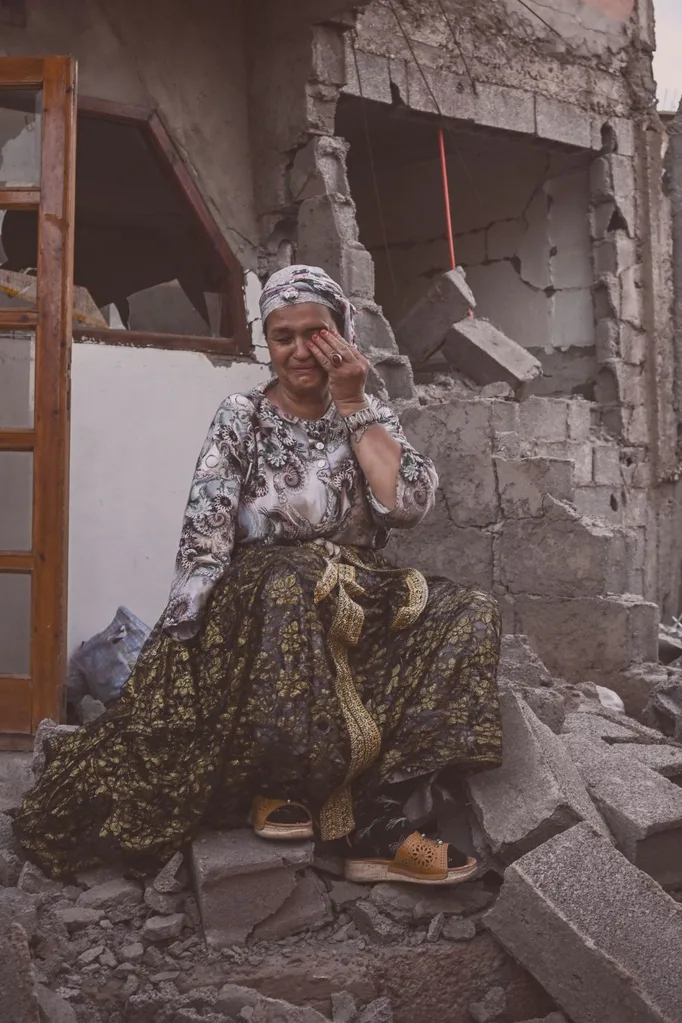
When I arrive in Paris, news of the earthquake is dominating every news channel, with calls to donate to the Moroccan Red Cross.
French people living in Morocco have organised clothing and food for villagers high up in the Atlas Mountains, but damaged roads are making it impossible for rescue teams to reach them.
There’s footage of people still staying on the streets with their families, near where we were. The ancient walls of the city have collapsed in many places, but rescuers are miraculously finding people alive through the rubble. Yet tragically, the death toll rises, and I despair for the many kind people we met during that magical week in Morocco.
How To Help Moroccans After The Earthquake
There are a number of charities offering support to Moroccan people in the wake of the devastating tremor.
- Moroccan Red Crescent Society: A non-government organisation that is a member of the International Federation of Red Cross and Red Cross Crescent Societies. It has teams working on the ground to support search and rescue, provide first aid and psychosocial support. They are also helping transport the injured to hospital.
- UNICEF: Has set up an appeal to support children and their families in the wake of the disaster.
- Global Giving: Has an earthquake relief fund to help meet the needs of survivors (food, fuel, water, medicine, shelter) and later to support recovery efforts in restoring damaged homes and infrastructure.
- Care Australia: Has an earthquake fund to provide lifesaving aid and services on the ground in this emergency.
- Doctors Without Borders: Médecins Sans Frontières (MSF) is getting in contact with local authorities in order to send emergency medical and humanitarian teams if needed.
- Islamic Relief Fund: has set up a fund to provide food, water, medical aid, shelter and other essentials.
- Global Empowerment Mission: Is focusing on the initial response, saying its team will be on the ground in Marrakesh and the surrounding communities offering immediate assistance.
